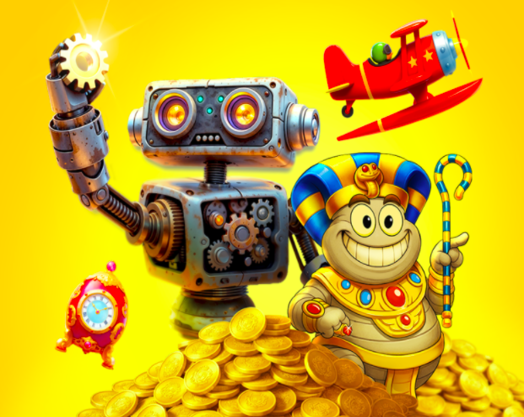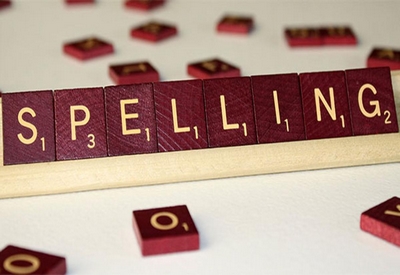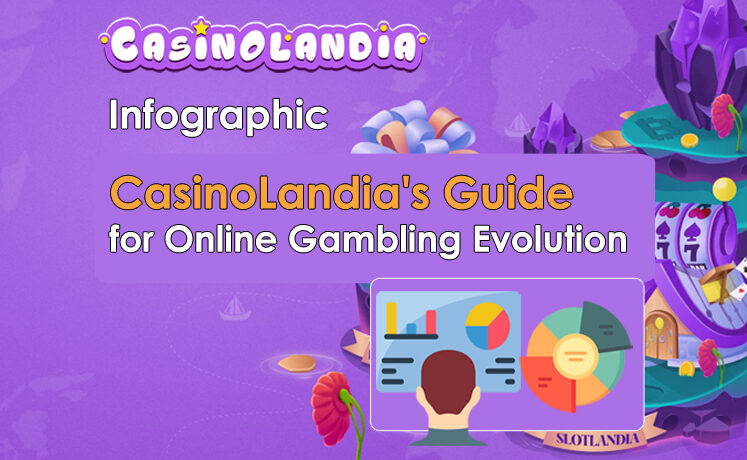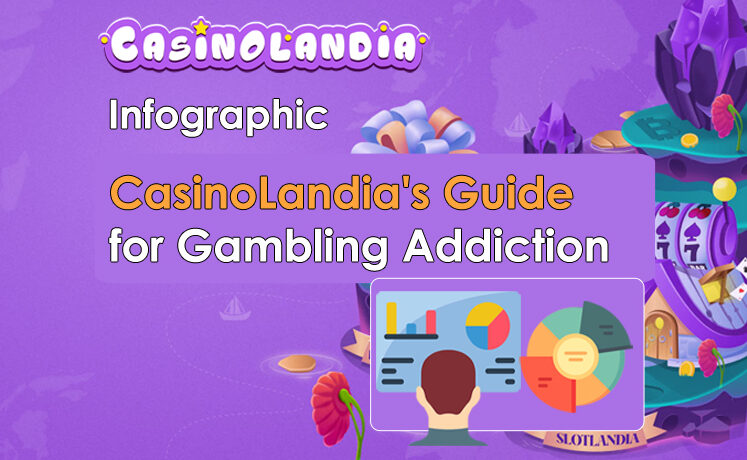Comprehensive Guide to the History of Gambling




Celebrating the Antiquity: Gambling Through the Ages
Gambling, one of humankind's oldest activities, has a storied history that spans millennia and transcends geographical boundaries. Its roots can actually be traced back to ancient civilizations where games of chance and skill were used for both entertainment and divination. In Mesopotamia, as early as 3000 BC, people rolled dice made of bone to determine outcomes. In ancient China, the invention of playing cards in the 9th century AD marked an evident development in gambling, evolving into games like poker and blackjack. The Greeks embraced the concept of fate and chance, with the casting of lots being a common practice. Throughout the Middle Ages and Renaissance, gambling thrived in various forms, from dice games in taverns to betting on jousting tournaments. The dawn of the 17th Century witnessed the birth of formalized casinos in Italy, setting the stage for the wealthy gambling houses of Europe. The 20th Century ushered in a new era with the legalization of gambling in the United States, leading to the iconic Las Vegas Strip. In recent decades, the digital age has transformed gambling once more, with the proliferation of online casinos and sports betting platforms. The history of gambling is a reflection of human nature, revealing our innate fascination with risk, chance, and the thrill of uncertainty, as well as the profound impact it has had on societies, culture, and even legislation throughout history. It stands as a testament to our enduring love affair with games of chance, skill, and the ever-elusive jackpot.
Rolling the Dice Through History: A Timeline of Gambling
The gambling timeline is a journey through time that reveals the main stages in the history of this ancient human activity. It begins in the mists of antiquity, where the earliest forms of gambling emerged in ancient civilizations like Mesopotamia and China, around 3000 BC. These civilizations engaged in games of chance and skill, setting the foundation for future gambling practices. In the medieval and Renaissance periods, gambling evolved, with dice games and card games gaining popularity across Europe. The 17th Century saw the birth of formalized casinos in Italy, laying the groundwork for the grand casinos of the 19th Century. The 20th Century marked a pivotal moment with the legalization of gambling in the United States, giving rise to iconic gambling destinations like Las Vegas. In the digital age, online gambling emerged as a global phenomenon, reshaping the landscape of the industry. This timeline illustrates how gambling has adapted, evolved, and persisted, reflecting the ever-changing dynamics of human culture and entertainment throughout history.
| Historical Periods of Gambling | Description |
|---|---|
| Origins of Gambling | The first forms of gambling in ancient times. |
| Gambling in Ancient Civilizations | Examination of gambling in Mesopotamia, China, and Greece, along with popular games and betting activities in these cultures. |
| Medieval and Renaissance Gambling | Transition from ancient to medieval gambling practices, including notable games during the Middle Ages and Renaissance. |
| The Birth of Modern Casinos | Emergence of formalized casinos, their historical context, and key features, notably during the 17th century. |
| Gambling in the 20th Century | Overview of gambling in the 20th century, including the Prohibition era and the rise of iconic gambling destinations like Las Vegas. |
| The Digital Age and Online Gambling | Exploration of online gambling's emergence, its impact on the global gambling industry, and the evolution of online gambling platforms and technologies. |
| Gambling Today | A snapshot of the contemporary gambling landscape, including international gambling destinations and their attractions. |
Gambling, a timeless human pursuit, has a rich and diverse history that spans centuries and civilizations.
Origins of Gambling – Timeline of Ancient Gambling Practices
Gambling, in its most primitive form, is an enduring testament to the human spirit of risk-taking and the innate desire for excitement. Its roots can be traced back to the very dawn of civilization, deep within the annals of history. As humanity took its first steps towards organized societies, our ancestors sought amusement and diversion through games that relied on a delicate balance of chance and skill. Often, these games were played using rudimentary tools and objects – from knucklebones and pebbles to sticks and shells – as means of wagering. These early practices transcended mere entertainment; they held cultural, social, and even spiritual significance. In some cases, gambling was intertwined with rituals and divination, as people believed that the outcomes of these games held clues to their destinies. These ancient pastimes, humble in their origins, sowed the seeds for the vibrant and diverse world of gambling we know today, evolving and adapting to the ever-changing tapestry of human civilization.
| Period | Description |
|---|---|
| 3000 BC | Earliest known use of dice in Mesopotamia. |
| 9th Century | Invention of playing cards in China. |
| Ancient Rome | Widespread popularity of betting on chariot races. |
Gambling in Ancient Civilizations – Popular Games and Betting Activities in Ancient Cultures
Gambling in ancient civilizations constitutes a captivating chapter in the annals of human history, reflecting the innate human proclivity for games of chance and skill. The history of gambling in Mesopotamia unveils an ancient civilization's penchant for games of chance and skill that dates back thousands of years. In the cradle of civilization, where the Sumerians, Babylonians, and Assyrians thrived, evidence of early gambling practices has been unearthed. Mesopotamians engaged in various forms of wagering, notably involving dice made from materials like bone or clay. These dice were used for both entertainment and divination, reflecting the cultural significance of gambling in their society. The concept of casting lots, often used for decision-making and divining fate, was another prominent gambling-related activity in Mesopotamia. These ancient practices not only entertained but also provided insights into the spiritual and cultural beliefs of this remarkable civilization. Mesopotamia's gambling traditions stand as a testament to the enduring human fascination with games of chance, making it an integral part of the rich tapestry of ancient history.
While the origins of gambling are shrouded in antiquity, it is Ancient China that provides some of the earliest concrete evidence. Archaeological discoveries, including tiles, suggest the existence of rudimentary games of chance dating back to ancient times. The reference to “the drawing of wood” in the Chinese “Book of Songs” hints at a potential lottery-type game employing these tiles, some of which might have been used to fund monumental projects, including the iconic Great Wall of China. In tandem, keno slips from around 200 BC further exemplify the utilization of lotteries for civic purposes, a practice that endured through history and continues today.
Turning to ancient Greece, the poet Sophocles may have embellished history with tales of dice's invention during the Trojan War, around 500 BC, but the love for gambling in both Greek and Roman societies is indisputable. Dice games existed even earlier, with a pair unearthed from an Egyptian tomb dated to 3000 BC. Despite their enthusiasm, gambling, including dice games, was strictly banned within Rome, leading ingenious citizens to invent gambling chips as a clever ruse. This enduring passion for games of chance and skill in these ancient civilizations not only entertained but also influenced the trajectory of gambling, leaving an indelible mark on the broader history of gaming and wagering.
| Civilization | Popular Games | Betting Activities |
|---|---|---|
| Mesopotamia | Dice games, betting on outcomes | Casting lots for divination |
| China | Card games, wagering on outcomes | Using dice for fortune-telling |
| Greece | Dice games, board games | Betting on sports events and competitions |
Medieval and Renaissance Gambling – Notable Gambling Games during the Middle Ages and Renaissance
Medieval and Renaissance gambling marked a dynamic shift in the evolution of wagering practices. As society transitioned from ancient to medieval times, a wave of change swept through the realm of gambling. Dice games, with their origins rooted in antiquity, continued to captivate enthusiasts, while card games began to gain prominence. The advent of playing cards, with their intricate designs and suits, introduced a new dimension to gambling entertainment. These games of chance not only provided amusement but also became integral to social gatherings and entertainment in the medieval and Renaissance periods. Whether it was a friendly dice roll at a tavern or a high-stakes card game in the courtly circles, gambling was not just about winning or losing; it was a shared experience that brought people together, leaving an indelible mark on the cultural tapestry of the time.
| Game | Description |
|---|---|
| Hazard | A popular medieval dice game. |
| Faro | A Renaissance card game of chance. |
| Cockfighting | Betting on the outcome of cockfights. |
| Jousting Tournaments | Wagering on knights in tournaments. |
The Birth of Modern Casinos – Pioneering Casinos and Their Key Features
The 17th Century stands as a pivotal juncture in the annals of gambling history, characterized by the emergence of formalized casinos in the heart of Italy. This transformative chapter in the evolution of wagering marked a profound shift from the informal, often ad-hoc gambling venues of previous eras. Italy, renowned for its rich cultural heritage, gave birth to the world's first official casino – a term derived from the Italian word “casa,” meaning house. These pioneering establishments not only provided a dedicated space for games of chance but also introduced a level of sophistication and structure that was previously absent. Patrons of these early casinos enjoyed an array of games, from card games like baccarat and poker to roulette, which became an enduring symbol of casino gaming. The birth of modern casinos in Italy laid the foundation for the opulent gambling houses and resorts that would later grace cities across Europe and the world. Beyond their entertainment value, these casinos held historical significance as hubs of social interaction and leisure, often attracting aristocrats, intellectuals, and travelers alike. Their enduring legacy endows them with a central role in shaping the modern gambling industry, setting the stage for the glamorous and dynamic casinos that continue to captivate audiences today.
| Casino | Location | Key Features |
|---|---|---|
| Casino di Venezia | Venice, Italy | The world's first official casino. |
| Casino de Spa | Spa, Belgium | Established in 1763, one of Europe's earliest casinos. |
| Casino de Monte-Carlo | Monte Carlo, Monaco | Known for its opulence and luxury gaming experience. |
Gambling in the 20th Century – Significant Milestones in the 20th-century Gambling Industry
The 20th Century ushered in a remarkable era of transformation and expansion in the gambling industry. It was a century marked by significant milestones that forever altered the landscape of wagering and entertainment. One of the most defining moments was the Prohibition era in the United States, which took place from 1920 to 1933. While ostensibly aimed at curbing alcohol consumption, Prohibition unintentionally fueled the growth of illegal gambling, as underground casinos and speakeasies thrived in defiance of the ban. This period also witnessed the emergence of organized crime syndicates deeply involved in the gambling world.
However, the 20th Century wasn't just about the shadowy world of illegal gambling. It was also the Century that saw the rise of Las Vegas as the world's gambling capital. What began as a humble desert town transformed into an electrifying oasis of entertainment and gaming, thanks in large part to the legalization of gambling in Nevada in 1931. Iconic casinos like the Flamingo, the Sands, and the Stardust became legendary, drawing celebrities, high rollers, and tourists from around the globe. The Rat Pack era, featuring the likes of Frank Sinatra and Sammy Davis Jr., added to Las Vegas's allure as the entertainment capital of the world.
Moreover, the latter half of the 20th Century saw the expansion of Native American casinos, a development that brought gambling to communities across the United States. These casinos not only offered economic opportunities for tribes but also contributed to the broader growth of the gambling industry.
In this transformative Century, gambling evolved from its clandestine roots into a legitimate and thriving industry, with Las Vegas at the forefront. The 20th Century's significant milestones in gambling set the stage for the diverse and dynamic gaming landscape that we witness today.
| Year | Event |
|---|---|
| 1920-1933 | Prohibition era in the United States fuels illegal gambling. |
| 1931 | Legalization of gambling in Nevada (Las Vegas). |
| 1940s | Proliferation of slot machines and casinos. |
| 1950s | The Rat Pack era, making Las Vegas a global icon. |
| 1970s | Introduction of state lotteries across the U.S. |
| 1990s | Expansion of Native American casinos. |
The Digital Age and Online Gambling – Evolution of Online Gambling Platforms and Technologies
The advent of the Digital Age brought about a revolution in the world of gambling, as the internet became the catalyst for the proliferation of online gambling platforms and a global shift in how people wagered. This transformative chapter in gambling history, often referred to as the Digital Age or the Internet Age, saw the rapid rise of online casinos, sports betting websites, poker rooms, and more. The convenience of accessing these platforms from the convenience of one's home, 24/7 availability, and the vast array of gaming options contributed to their meteoric rise. Online gambling also transcended geographical boundaries, allowing players from different corners of the world to engage in virtual games of chance and skill, transforming the industry into a global phenomenon.
| Decade | Technological Advancements |
|---|---|
| 1990s | Pioneering online casinos and basic sports betting websites emerge. Introduction of secure payment methods. |
| Early 2000s | Evolution of online poker rooms and the popularization of Texas Hold'em. Mobile compatibility begins to gain traction. |
| Mid-2000s | Advent of live dealer games, providing a more immersive casino experience. Advancements in graphics and user interfaces. |
| Late 2000s | Introduction of mobile gambling apps, making betting on the go accessible to a wider audience. |
| 2010s | Emergence of cryptocurrencies as a viable payment option for online gambling. Integration of top-notch virtual reality and augmented reality technologies for immersive gaming experiences. |
| 2020s | Continued growth of online gambling markets worldwide, with a focus on responsible gaming and enhanced security measures. Further integration of blockchain technology for transparency and fairness. |
The evolution of online gambling platforms and technologies reflects not only the industry's adaptability but also its commitment to providing players with cutting-edge experiences. As we venture further into the Digital Age, online gambling remains at the forefront of technological innovation, promising an exciting future for both operators and enthusiasts alike.
Gambling Today – Leading Gambling Destinations Worldwide and Their Attractions
Gambling today is a thriving and dynamic industry that spans the globe, offering an unparalleled array of betting opportunities and entertainment experiences. In the 21st Century, gambling has evolved beyond traditional brick-and-mortar casinos to encompass a vast online ecosystem, allowing players to indulge in their favorite games from the comfort of their homes or on the go. International gambling destinations have also flourished, drawing visitors with the promise of luxurious resorts, world-class entertainment, and the chance to test their luck at a variety of games.
| Destination | Attractions and Features |
|---|---|
| Las Vegas, USA | The world-renowned Las Vegas Strip, featuring iconic casinos like the Bellagio and Caesars Palace. Diverse entertainment options, from live shows to nightclubs. |
| Macau, China | The “Gambling capital of the world,” boasting an array of opulent resorts, such as The Venetian and MGM Macau. High-stakes gaming and a blend of Chinese and Portuguese culture. |
| Monte Carlo, Monaco | The historic Casino de Monte-Carlo, a symbol of luxury and elegance. Stunning Mediterranean views and a rich history of attracting aristocracy and celebrities. |
| Singapore | The Marina Bay Sands resort, featuring the world's largest rooftop infinity pool. A blend of modernity and tradition, with attractions like Gardens by the Bay. |
| Atlantic City, USA | Famous for its seaside casinos, including the Borgata and Caesars Atlantic City. A vibrant boardwalk, beachfront, and a variety of entertainment options. |
| London, UK | Elegant casinos like the Hippodrome and the Ritz Club. A diverse cultural scene, historic landmarks, and a thriving nightlife. |
| Sydney, Australia | The Star Casino with stunning views of Sydney Harbor. Beautiful beaches, iconic landmarks like the Sydney Opera House, and a vibrant culinary scene. |
| Monaco | The Casino de Monte-Carlo, renowned for its sophistication. Picturesque Mediterranean landscapes and a glamorous lifestyle in a compact principality. |
| Manila, Philippines | The Entertainment City complex with integrated resorts like Resorts World Manila. A burgeoning gambling hub with a vibrant local culture. |
These global gambling destinations showcase the industry's ability to cater to diverse tastes and preferences, offering everything from high-stakes gaming to world-class entertainment, fine dining, and cultural experiences. Gambling today isn't just about the games; it's a multifaceted journey that combines leisure, luxury, and the thrill of chance, all against the backdrop of some of the world's most iconic and captivating destinations.
The Cultural Impact of Gambling – Notable Examples of Gambling References in Culture
The cultural impact of gambling is a fascinating tapestry interwoven with art, literature, and popular culture. Throughout history, gambling has served as a wellspring of inspiration for artists, authors, and creators, offering a rich and nuanced lens through which to explore themes of risk, fortune, and human psychology. In literature, Fyodor Dostoevsky's novel “The Gambler” delves deep into the psyche of addiction and obsession, drawing from the author's own gambling experiences. The art world has also been captivated by gambling, as evidenced by Caravaggio's “The Cardsharps,” a 17th-century masterpiece that captures the tension and intrigue of a gambling scene. In cinema, iconic films like “Casino” and “Rounders” have explored the allure and perils of gambling, while music has celebrated its themes of strategy and chance through songs like Kenny Rogers' “The Gambler” and Lady Gaga's “Poker Face.” Television has embraced gambling with shows like “Las Vegas” and “Breaking Bad,” weaving intricate storylines around casinos and wagering. Even fashion has been influenced, with gambling motifs such as playing card prints and roulette wheel designs making their way into collections and accessories. Beyond explicit references, gambling has left an indelible mark on language and idioms, with phrases like “betting the farm” and “rolling the dice” permeating everyday speech. The cultural impact of gambling is vast and enduring, reflecting its enduring significance in human society and its capacity to provoke contemplation and fascination with the intricacies of chance and fortune.
| Cultural Reference | Description |
|---|---|
| Literature | Famed author Fyodor Dostoevsky's novel “The Gambler” explores the psychology of addiction and obsession through the protagonist's gambling habits. |
| Art | The 17th-century painting “The Cardsharps” by Caravaggio captures the tension and intrigue of a gambling scene. |
| Cinema | Iconic films like “Casino” and “Rounders” have delved into the world of gambling, showcasing its allure and perils. |
| Music | Numerous songs, from Kenny Rogers' “The Gambler” to Lady Gaga's “Poker Face,” reflect gambling's themes of risk and strategy. |
| Television | Popular TV shows like “Las Vegas” and “Breaking Bad” have featured storylines involving casinos and gambling. |
| Fashion | Gambling motifs, such as playing card prints and roulette wheel designs, have found their way into fashion collections and accessories. |
Responsible Gambling and Regulation – Overview of Key Gambling Regulations and Responsible Gaming Organizations
Responsible gambling and government regulations stand as twin pillars of paramount importance in the modern gambling landscape. As the gambling industry continues to evolve and expand, it becomes increasingly vital to ensure the well-being of individuals who engage in wagering activities. Responsible gambling entails promoting healthy gaming behaviors, advocating for safe gambling environments, and preventing and mitigating gambling-related harm. This includes measures like setting limits on bets, time, and losses, as well as self-exclusion programs and access to support for those facing gambling-related problems. On the regulatory front, governments around the world have instituted a diverse array of laws and regulations to govern the gambling industry, ensuring fairness, transparency, and consumer protection. These regulations vary rapidly from one jurisdiction to another but commonly encompass licensing requirements, taxation, advertising standards, and measures to deter money laundering and underage gambling.
| Region | Key Regulations | Responsible Gaming Organizations |
|---|---|---|
| United Kingdom | The UK Gambling Commission oversees licensing and compliance for operators. | GamCare, BeGambleAware, Gamblers Anonymous |
| United States | Individual states regulate gambling within their borders, with organizations like the National Council on Problem Gambling offering support. | National Council on Problem Gambling (NCPG), National Indian Gaming Association (NIGA) |
| European Union | Various EU directives and regulations set standards for online gambling and consumer protection. | European Gaming and Betting Association (EGBA), Responsible Gaming Association (RGA) |
| Australia | The Australian Communications and Media Authority regulates online gambling, while states oversee land-based operations. | Gambling Help Online, Gambling Therapy |
| Canada | Provincial governments regulate gambling, and organizations like the Responsible Gambling Council (RGC) provide resources and support. | Responsible Gambling Council (RGC), National Council on Problem Gambling (NCPG) Canada |
| Singapore | The Casino Control Act and the Betting Act regulate gambling in Singapore, with the National Council on Problem Gambling offering assistance. | National Council on Problem Gambling (NCPG) Singapore |
| Macau, China | The Gaming Inspection and Coordination Bureau supervise the gambling industry in Macau. | None specific, but responsible gaming initiatives are promoted by operators |
These regulations and responsible gaming organizations play a crucial role in safeguarding players' interests, ensuring that gambling remains an enjoyable and safe form of entertainment. They also promote transparency within the industry, combat problem gambling, and uphold the principles of fairness and integrity. As the gambling landscape continues to evolve, responsible gaming and effective regulation are essential components for the sustainability and ethical growth of the industry.
CasinoLandia's Final Thoughts – Recap of key historical milestones in gambling.
As we conclude our journey through the captivating history of gambling, it's remarkable to reflect on the key milestones that have shaped this enduring human activity. From the ancient civilizations of Mesopotamia and Greece to the birth of modern casinos in 17th-century Italy, and from the Prohibition era's underground gambling to the dazzling rise of Las Vegas as the global gambling capital in the 20th Century, the story of gambling is one of evolution, innovation, and cultural significance. In the Digital Age, we witnessed the advent of online gambling, a global phenomenon that reshaped the industry and made gaming more accessible than ever. Today, gambling not only thrives in iconic destinations like Las Vegas and Macau but also finds its place in popular culture, art, and literature. The enduring cultural impact of gambling, coupled with responsible gaming practices and government regulations, underscores the industry's commitment to providing both entertainment and protection to its participants. As we move forward, the rich history of gambling serves as a reminder of its enduring appeal, its capacity to adapt to the times, and its enduring place in the tapestry of human leisure and culture. CasinoLandia invites you to continue exploring the world of gambling, where chance and strategy converge to create an ever-thrilling experience for those who dare to take a bet.











